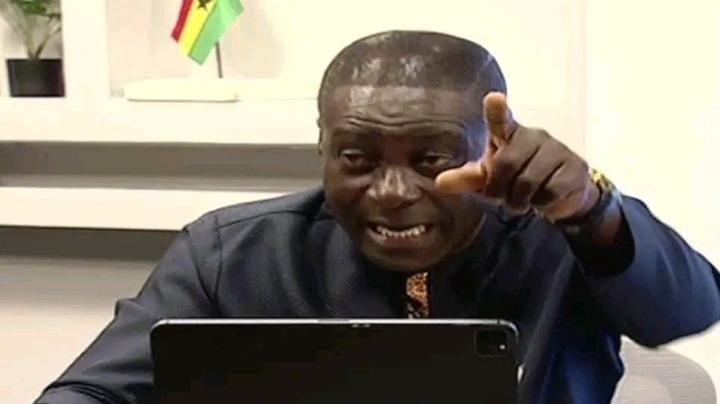In a thought-provoking statement, renowned media personality Captain Smart offered his insights on the intricate relationship between politicians and media platforms, particularly in the context of a notable incident involving Kwame Sefa Kayi, the host of Peace FM’s popular Kokrokoo show, and Sammy Gyamfi, the National Communication Officer of the National Democratic Congress (NDC).
The incident, which occurred some time ago, involved Gyamfi being dismissed from the Kokrokoo show following a heated exchange with Sefa Kayi. At that time, the decision elicited a wave of reactions, with some audiences expressing satisfaction over Gyamfi’s removal. However, in a surprising development, Captain Smart revealed that Sefa Kayi has since issued a public apology regarding the incident, altering the initial narrative surrounding the confrontation.
“When Sefa Kayi sacked Sammy Gyamfi from his show, some of you were happy, but now the senior man is apologizing; the table has turned,” Captain Smart remarked, pointing to the unpredictable dynamics that characterize media and political interactions. His comments reflect a broader sentiment about the shifting allegiances and public perceptions that often accompany political discourse in the media.
Captain Smart took the opportunity to delineate his own approach to media engagements, stating unequivocally that he does not actively seek out politicians to appear on his show. In his characteristic straightforward manner, he asserted, “Personally, I don’t entertain politicians. When I hear that NPP representatives say they won’t come on my show, I don’t care because I don’t need them.” This declaration underscores his commitment to maintaining an independent and unbiased platform for his audience.
By emphasizing his independence, Captain Smart conveyed a clear message about the importance of neutrality in media reporting. He expressed that his platform is not designed to cater to political figures or their agendas. “I don’t need any NPP representatives on my show,” he boldly stated, reinforcing his dedication to providing balanced coverage free from political influence.
Captain Smart’s remarks resonate with viewers who value objectivity in media reporting, especially in a landscape where political narratives can heavily influence public opinion. His critique of the power dynamics that often shape media engagements is particularly relevant in the current political climate, where media outlets frequently find themselves navigating complex relationships with politicians and political parties.
The discourse surrounding the incident between Sefa Kayi and Sammy Gyamfi, coupled with Captain Smart’s reflections, serves to highlight the evolving nature of media and politics in Ghana. As public figures grapple with the implications of their interactions, the need for transparency and accountability in media practices becomes increasingly critical.
In conclusion, Captain Smart’s insights on the Sefa Kayi and Sammy Gyamfi incident underscore the complexities of political engagement in media. His commitment to independence and neutrality offers a refreshing perspective in an environment often marked by partisanship and bias. As discussions surrounding media ethics and political accountability continue, Captain Smart’s stance may inspire other media practitioners to prioritize the integrity of their platforms.
Source link
